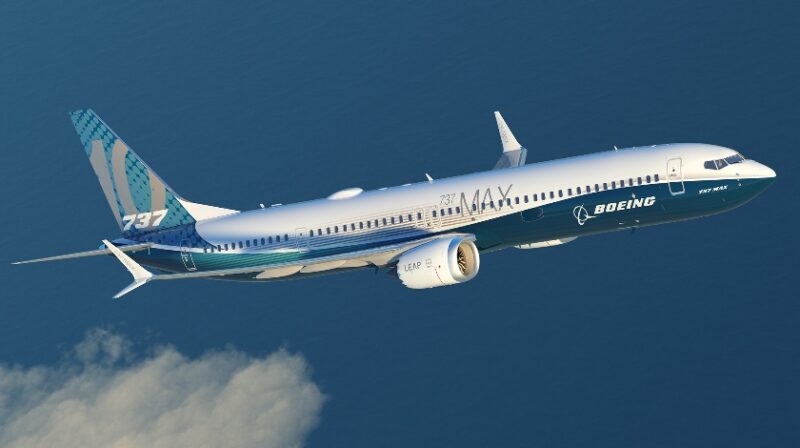Boeing’s 737-10 Max Receives FAA Approval for Certification Flights

Boeing has reached a significant milestone as the Federal Aviation Administration (FAA) has granted approval for certification flight testing of the highly anticipated 737-10 Max. This development marks a crucial step forward in the aircraft’s path to certification and eventual deployment.
Boeing’s 737-10, a larger variant within the 737 series, is poised to commence commercial service in 2024. This comes after years of production delays that have been overcome to bring this innovative aircraft to market.
The 737-10 is set to be a direct competitor to Airbus’ renowned A321neo, celebrated for its exceptional passenger capacity and fuel efficiency.
The official announcement from Boeing was communicated through an internal memo to its employees. It confirmed that the FAA has granted a type inspection authorization for the 737-10. This authorization allows FAA pilots to initiate the critical phase of certification flight testing.
Among Boeing’s 737 variants, the 737-10 and 737-7 are the remaining models awaiting certification. In contrast, the 737-8, 737-9, and the high-density 737-8-200 are already operational.
Boeing’s internal memo also highlighted the remarkable performance of the 737-10 during rigorous in-house testing. The aircraft has completed over 400 flights, accumulating nearly 1,000 flight hours. Boeing acknowledged the dedication and resilience of its team in achieving this milestone.
This achievement follows several years of production challenges triggered by heightened scrutiny following two 737 plane crashes in 2018 and 2019. These tragic incidents led to the global grounding of the entire 737 fleet.
The root cause of these accidents was identified as issues with the Maneuvering Characteristics Augmentation System (MCAS), a specialized system designed to prevent stalls. Faulty angle of attack sensors led to MCAS providing erroneous data, resulting in stall alerts and nosedive situations.
While Boeing was aware of this issue, it initially did not classify it as high-risk, as reported by the Seattle Times. The 737-8 and 737-9 were officially cleared for resumption of operations in November 2020. Boeing had originally planned for the 737-10 to enter service in 2022.
In response to the accidents and to enhance safety measures, regulators mandated the reengineering of various 737 components. Notably, a new crew alert system was required in the cockpit, with a deadline set for December 2022.
This requirement applied to new 737 models, potentially leading to differences between the 737-10’s flight deck and the previously certified 737 variants. However, Boeing was granted a waiver by Congress, contingent upon implementing two specific safety enhancements across all 737 variants, starting three years after the 737-10’s certification.
This last-minute success positions the 737-10 for a 2024 debut in commercial service without substantial cockpit modifications. Once in the hands of airlines, it will present a formidable challenge to Airbus’ A321neo, known for its impressive range, seating capacity, and operational efficiency.
Boeing asserts that the 737-10 will offer “increased capacity and the industry’s lowest cost per seat for a single-aisle airplane.” This makes it an attractive choice for airlines operating on lower-demand, long-haul routes.
As of October 30, 2023:
-
- 737-7 orders: 386
- 737-8 orders: 5,154
- 737-8-200 orders: 462
- 737-9 orders: 420
- 737-10 orders: 1,071
Despite its production challenges, Boeing has received a significant number of orders for the 737-10 from global carriers, including United Airlines, Delta Air Lines, Ryanair, and Air India.
Stay informed about the latest developments in Boeing’s 737 Max.
Sources: AirGuide Business airguide.info, bing.com, reuters.com
